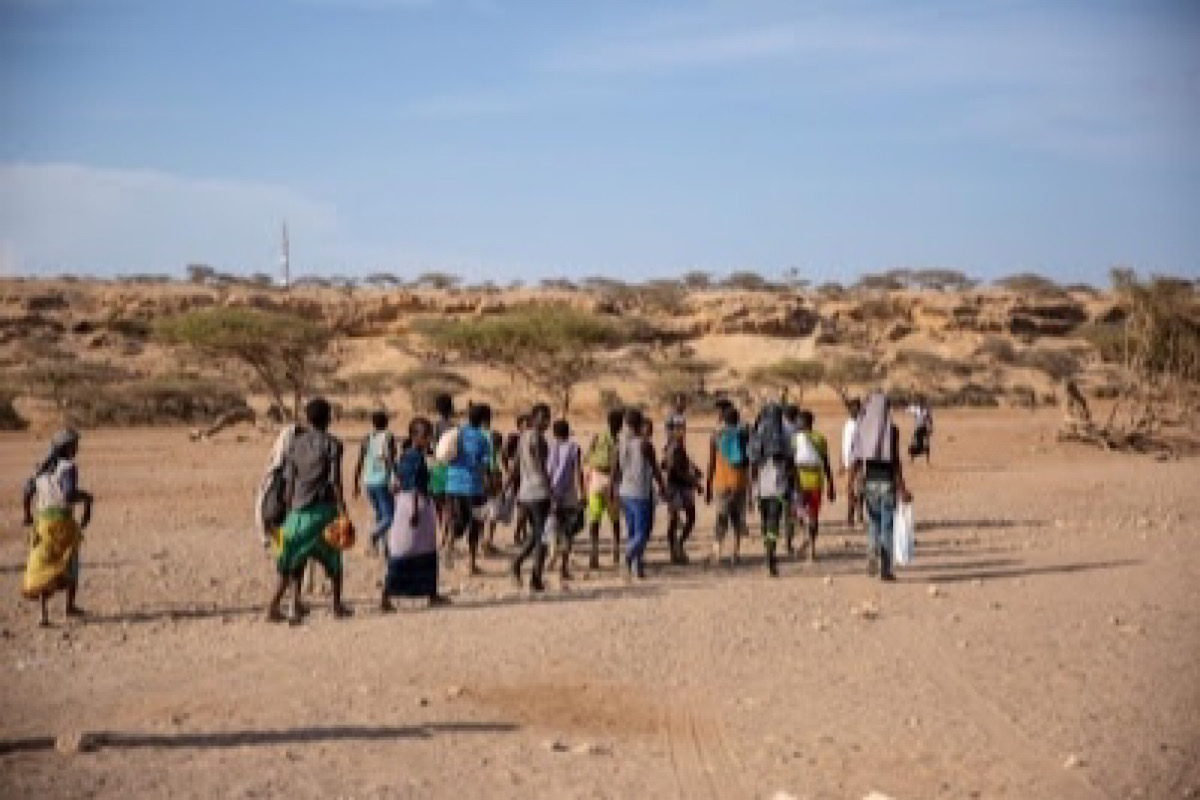WFP says three personnel killed in Sudan
The World Food Programme (WFP) on Friday announced that three of its staff members were killed in an aerial bombardment in Sudan, while the Sudanese government pledged to investigate the incident.
The World Food Program (WFP) has appealed for $810 million over the next six months to scale up humanitarian assistance for millions of people in the Horn of Africa who are trapped in a hunger emergency.

The World Food Program (WFP) has appealed for $810 million over the next six months to scale up humanitarian assistance (photo:IANS)
The World Food Program (WFP) has appealed for $810 million over the next six months to scale up humanitarian assistance for millions of people in the Horn of Africa who are trapped in a hunger emergency.
WFP Regional Director for Eastern Africa Michael Dunford said on Wednesday that the funds will help the WFP keep life-saving assistance going and invest in long-term resilience in the Horn of Africa.
Advertisement
“Conflict, climate extremes and economic shocks: the Horn of Africa region is facing multiple crises simultaneously. After five consecutive failed rainy seasons, flooding has replaced drought, killing livestock, damaging farmland, and further shattering livelihoods,” he added in a statement issued in Nairobi, the capital of Kenya.
Advertisement
The WFP warned that the Horn of Africa is lurching from crisis to crisis, adding that the longest drought in recorded history has given way to rains and flash flooding, Xinhua news agency reported.
“And now the outbreak of conflict in Sudan is forcing hundreds of thousands of people to flee their homes,” Dunford said.
The WFP said that by the end of 2022, it was distributing food assistance to a record 4.7 million people in Somalia but in April, funding shortfalls forced it to reduce this to three million people.
It warned that without additional funds, further cuts will have to be made in emergency food assistance caseload in Somalia to just 1.8 million by July.
This, it said, means that almost three million people will not receive support despite their continuing needs.
According to the WFP, when the region’s long-awaited rains arrived in March, they should have brought some relief, but instead, flash flooding inundated homes and farmland, washed away livestock, and closed schools and health facilities, forcing more than 2,19,000 people from their homes in southern Somalia, where 22 people were also killed.
The WFP said the drought of the last three years has left more than 23 million people across parts of Ethiopia, Kenya and Somalia facing severe hunger, with mortality and malnutrition rates remaining unacceptably high and consecutive failed harvests and high transport costs pushing food prices far beyond the reach of millions in the region.
Dunford said the WFP’s rapid expansion of life-saving assistance helped prevent famine in Somalia in 2022.
“But despite the emergency being far from over, funding shortfalls are already forcing us to reduce assistance to those who still desperately need it,” he added.
“Without sustainable funding for both emergency and climate adaptation solutions, the next climate crisis could bring the region back to the brink of famine.”
The UN agency said it will take years for the region to recover, and humanitarian assistance is a lifeline yet limited humanitarian resources are being stretched further still by the conflict in Sudan, which has sent more than 2,50,000 people fleeing into neighbouring countries such as Ethiopia and South Sudan, where food insecurity is already desperately high.
Advertisement